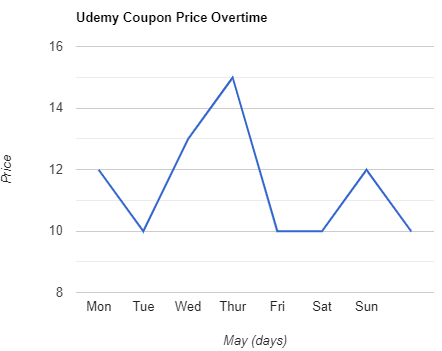Convolutional Neural Networks in TensorFlow
Discover the tools software developers use to build scalable AI-powered algorithms in TensorFlow, a popular open-source machine learning framework.In this four-course Specialization, you'll explore exciting opportunities for AI applications. Begin by developing an understanding of how to build and train neural networks. Improve a network's performance using convolutions as you train it to identify real-world images. You'll teach machines to understand, analyze, and respond to human speech with natural language processing systems. Learn to process text, represent sentences as vectors, and input
Created by: Laurence Moroney
 Quality Score
Quality Score
Content Quality
/
Video Quality
/
Qualified Instructor
/
Course Pace
/
Course Depth & Coverage
/
Overall Score : 90 / 100
 Live Chat with CourseDuck's Co-Founder for Help
Live Chat with CourseDuck's Co-Founder for Help
Need help deciding on a artificial intelligence course? Or looking for more detail on Laurence Moroney's Convolutional Neural Networks in TensorFlow? Feel free to chat below.
Join CourseDuck's Online Learning Discord Community
 Course Description
Course Description
If you are a software developer who wants to build scalable AI-powered algorithms, you need to understand how to use the tools to build them. This course is part of the upcoming Machine Learning in Tensorflow Specialization and will teach you best practices for using TensorFlow, a popular open-source framework for machine learning.In Course 2 of the deeplearning.ai TensorFlow Specialization, you will learn advanced techniques to improve the computer vision model you built in Course 1. You will explore how to work with real-world images in different shapes and sizes, visualize the journey of an image through convolutions to understand how a computer "sees" information, plot loss and accuracy, and explore strategies to prevent overfitting, including augmentation and dropout. Finally, Course 2 will introduce you to transfer learning and how learned features can be extracted from models. The Machine Learning course and Deep Learning Specialization from Andrew Ng teach the most important and foundational principles of Machine Learning and Deep Learning. This new deeplearning.ai TensorFlow Specialization teaches you how to use TensorFlow to implement those principles so that you can start building and applying scalable models to real-world problems. To develop a deeper understanding of how neural networks work, we recommend that you take the Deep Learning Specialization.
 Instructor Details
Instructor Details

- 4.5 Rating
 107 Reviews
107 Reviews
Laurence Moroney
Laurence Moroney is a Developer Advocate at Google working on Artificial Intelligence with TensorFlow. As the author of more programming books than he can count, he's excited to be working with deeplearn.ai and Coursera in producing video training. When not working with technology, he's a member of the Science Fiction Writers of America, having authored several science fiction novels, a produced screenplay and comic books, including the prequel to the movie 'Equilibrium' starring Christian Bale. Laurence is based in Washington State, where he drinks way too much coffee.





